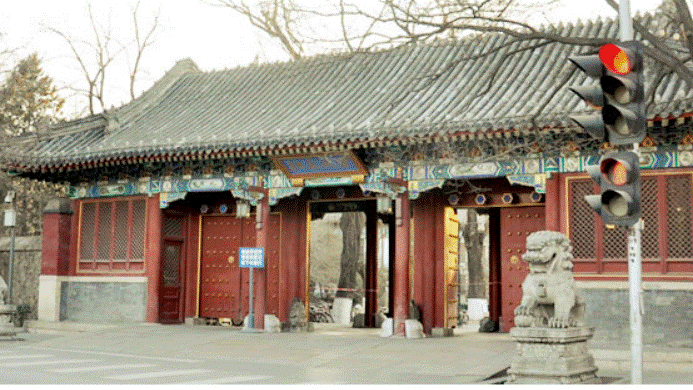Controversy Surrounding Closure of Universities and School Admissions Review in China
The closure of universities and the review of school admissions have become the focus of public discussion in China. In a recent development, Tsinghua University in Beijing claimed that it would “unimpede communication” with Peking University, sparking criticism from netizens who dubbed the claim as “absurd”.
The Office of the President of Tsinghua University and the Security Office issued an announcement stating that Tsinghua University and Peking University have reached an agreement through consultation. Starting from January 1, 2024, teachers and students of the two universities will “smoothly communicate with each other”, and the gates of the two universities will implement an inspection pass system, whereby the scope of the “exchange of identity verification information” between the two schools is limited to the current staff and students.
The announcement also stated that the school will “provide the other party with the authority to verify ID card information and gradually implement long-term identity reporting.”
The recent controversy surrounding university closures and school admissions review intensified when Peking University associate professor Li Zhi’s dissatisfaction with the face-scanning access control system at the gate of Peking University led to him running away to avoid being chased by security guards. The incident sparked a hot discussion and under public pressure, Peking University relaxed the access control system to a limited extent.
However, the move by Peking University and Tsinghua University has been met with strong criticism from netizens. Many have labeled it as “ridiculous” and “disgraceful”.
An article by Youyou Lu Ming criticized the situation, saying, “This is really grass growing in the pool – ridiculous” and “It’s so outrageous.”
Another article signed by Lu Dewen raised the question of what it means for neighboring Peking University and Tsinghua University to “achieve smooth interoperability”. The article declared that the move signifies that Tsinghua University belongs to Peking University people, and Peking University belongs to Tsinghua people, but both universities do not belong to the whole society.
On January 4, ifeng.com published an article titled “Peking University and Tsinghua University are so shameful.” The article expressed disappointment, stating, “A Peking University and Tsinghua University that is so fearful and repellent of freedom, a Peking University and Tsinghua University that is so fond of privileges, is far from being world-class. It is really… It’s so embarrassing.”
The controversy has sparked a debate among netizens, with some criticizing the universities for feeling like a “prison” and pointing out that public universities spend money from the national finance, and therefore, should be open to the public.
The ongoing developments point to a growing dissatisfaction among the public with the actions of Peking University and Tsinghua University, raising questions about the role and responsibility of these institutions in society.
Reporter Li Li contributed to this report.
